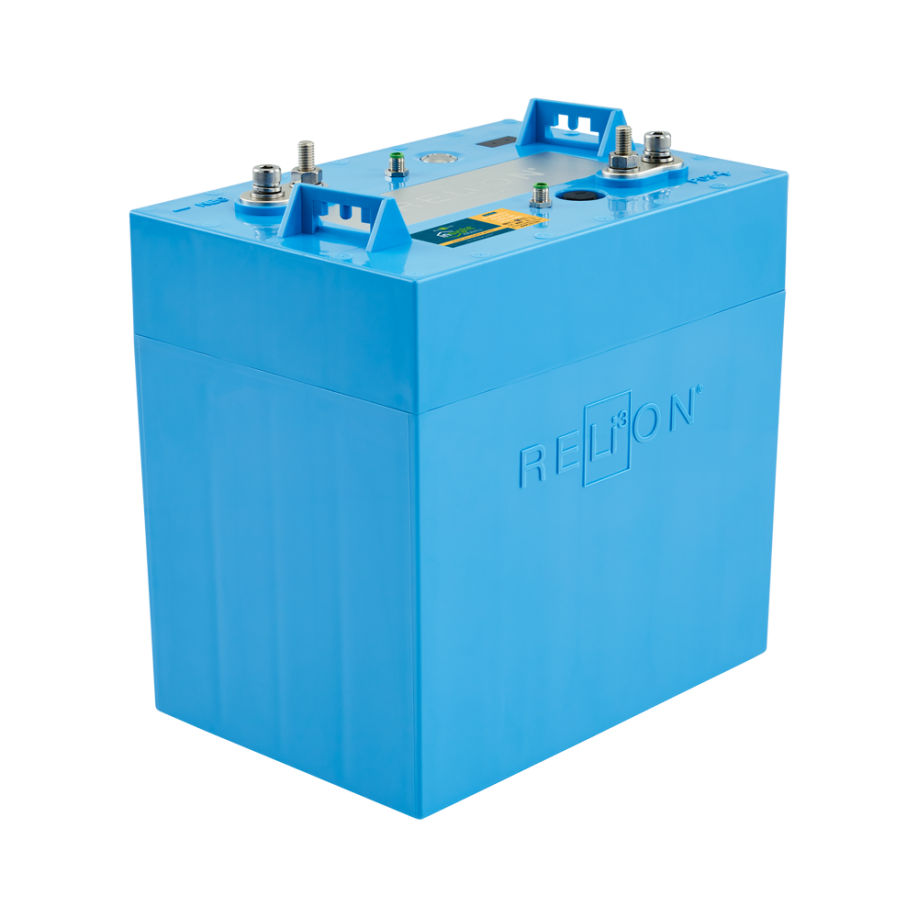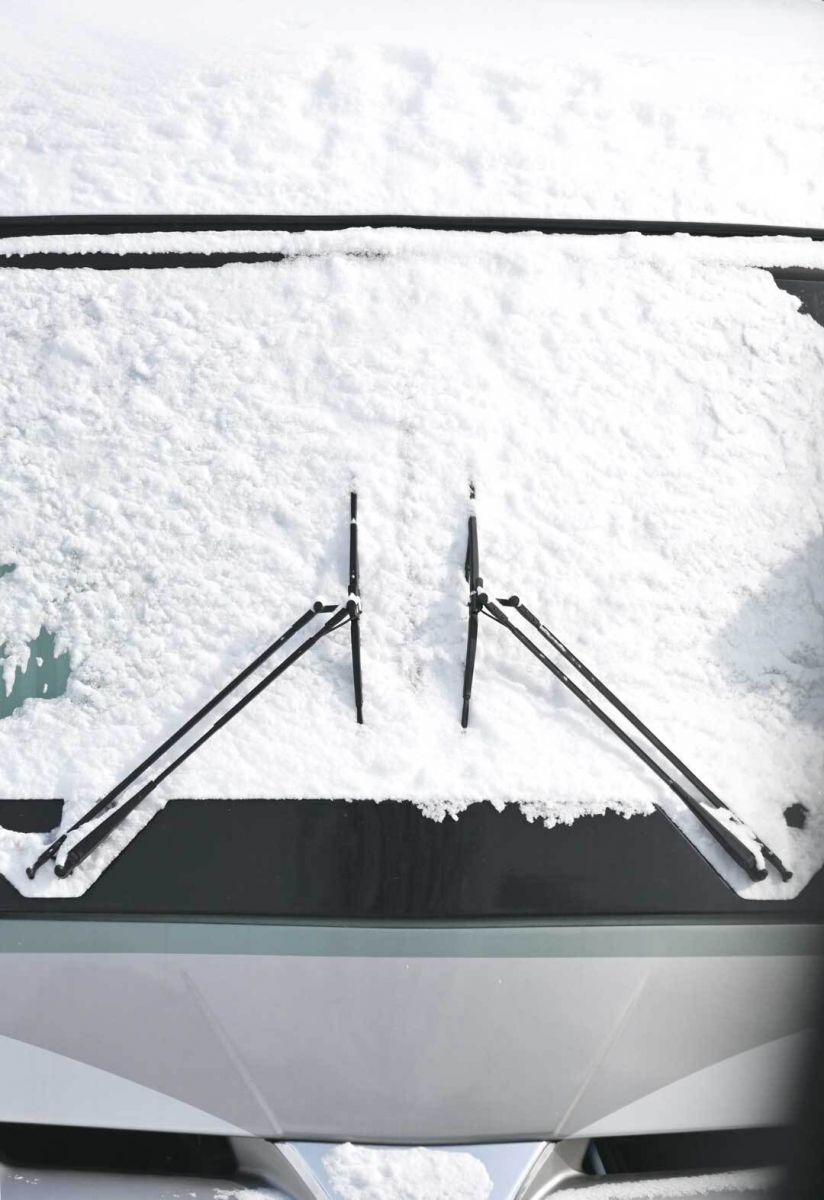When temperatures dip below 32 degrees Fahrenheit, the efficiency of a battery and the usable capacity that it has are both reduced by as much as 20 to 30 percent compared to when the temperatures are over 32 degrees.
 Lithium-Ion Batteries & Cold Weather
Lithium-Ion Batteries & Cold Weather

Article from | RELiON
What does cold weather have to do with lithium-ion batteries? A lot more than you might think. Cold weather impacts not only lithium-ion batteries, but all batteries, and knowing about the impacts that weather has on your battery can help you make the best choice when purchasing one - from longevity to cost savings to daily performance.
How Cold Weather Impacts Your Battery
When temperatures dip below 32 degrees Fahrenheit, the efficiency of a battery and the usable capacity that it has are both reduced by as much as 20 to 30 percent compared to when the temperatures are over 32 degrees. This is not unique to lithium iron phosphate batteries (LiFeP04) though, as all batteries, including AGM and lead-acid batteries, also are impacted by freezing temperatures. Chemical reactions increasingly slow down in colder temperatures, and this is what causes there to be a weaker output with batteries as the weather cools down.

Are Lithium Iron Phosphate Batteries Good for Cold Weather?
If all batteries slow down in colder weather, then you have to wonder if lithium iron phosphate batteries have any edge over lead-acid or AGM batteries. Although lithium-ion batteries are also impacted by cold weather, they are far better at charging and lasting longer, with greater power, in such conditions, which gives them an upper hand compared to other battery choices. Charging lithium batteries below freezing can be a challenge, but RELiON's low temperature lithium batteries are cold-weather performance batteries that can charge at temperatures down to -20°C (-4°F). The system features proprietary technology that draws power from the charger itself, requiring no additional components. The entire process of heating and charging is completely seamless.
- Charging times are a major advantage to lithium-ion batteries, as they can charge at a speed that allows them to get their power back in a timelier manner. While a lead-acid battery can take upwards of 10 hours, on average, to charge, lithium-ion batteries can charge in as little as 30 minutes to 3 hours.
- Lithium-ion batteries also have charges that last for longer periods of time, which means that you have to worry less about recharging the battery and replacing the battery. A lithium-ion battery can last as long as 10 to 20 years compared to the average lifespan of lead-acid batteries, which is only 2 to 5 years. A lithium-ion battery can also last longer on a single charge, averaging 2 to 5x more time than the battery can be used without having to be recharged compared to lead-acid batteries.
- All batteries have a limit when it comes to their charging cycles, but lithium-ion batteries have more available cycles that can range as high as 10x as many cycles available. A lithium-ion battery can have as many as 5,000 charge cycles, on average, compared to the average 400 to 1,000 cycles that lead-acid batteries can provide.
- Lithium-ion batteries also require less maintenance. Unlike lead-acid batteries, which often need to be cleaned to address dirt and corrosion, lithium-ion batteries do not need this higher level of maintenance.
- One way to ensure that a battery lasts longer is to take it out of the cold when possible and store it indoors. While this is not possible with all batteries due to their size and weight, the lightweight nature of lithium-ion batteries makes it possible to easily move a lithium-ion battery and store it indoors when it is not being used, or simply at the end of the day.

Do’s and Don'ts of Using Lithium-ion Batteries in Cold Weather
Maximizing the power of your lithium-ion battery can be as easy as following some simple do’s and don'ts:
- Do charge your battery often
- Don’t charge your battery in temperatures under freezing
- Don’t leave movable lithium-ion batteries out in the cold, if possible
- Do take special care when storing your battery for long periods in colder months
- Do bring your batteries in from the cold at the end of the day, if possible
- Some lithium-ion batteries are better than others for cold weather
There are many types of lithium-ion batteries available on the market and they are not all created equal. Some batteries perform better than others in colder weather because they were specifically designed to perform well in temperatures below freezing. Batteries designed for colder weather are specifically engineered in a way that allows them to be safely charged at temperatures as low as -20°C (-4°F) using a standard charger.
The internal heating and monitoring systems of lithium-ion batteries like the RB100-LT (Low Temperature) 12V 100Ah allow power to be drawn from the charger of the battery itself with no additional components needed. The RELiON LT Series lithium-ion batteries charge in cold weather at a continuous rate without a reduction in current.
This is not something that can be found in all batteries, as many batteries become irreparably damaged if they are charged in temperatures below freezing. RELiON’s battery management system (BMS), on the other hand, enables its cold-weather lithium-ion series of batteries to be heated before the battery needs to be charged without any specialized heating elements.
Looking for more information about the best battery for your cold weather needs? Not sure which lithium-ion battery is right for you? Choosing the right battery for cold weather can be overwhelming, but professionals with vast amounts of lithium-ion battery experience are available to help walk you through your choices by listening to what your needs are. You can contact a RELiON specialist at any time to discuss the best options for you.
The content & opinions in this article are the author’s and do not necessarily represent the views of AltEnergyMag
Comments (0)
This post does not have any comments. Be the first to leave a comment below.
Featured Product

